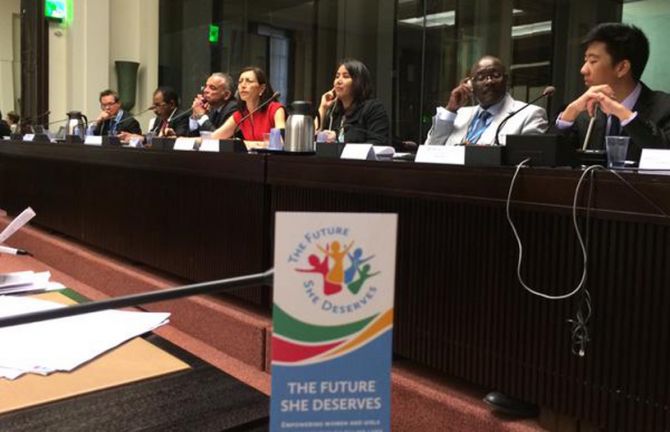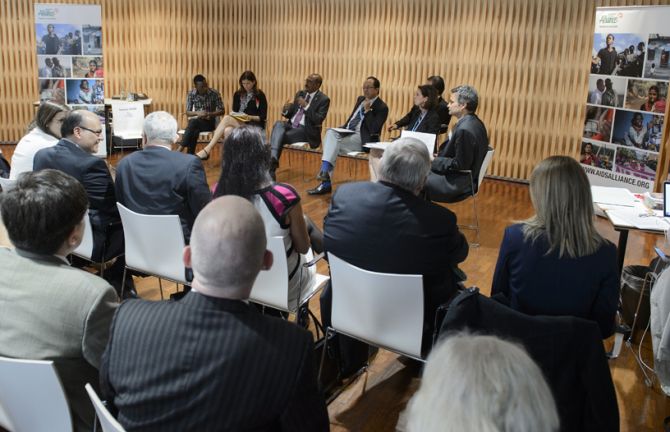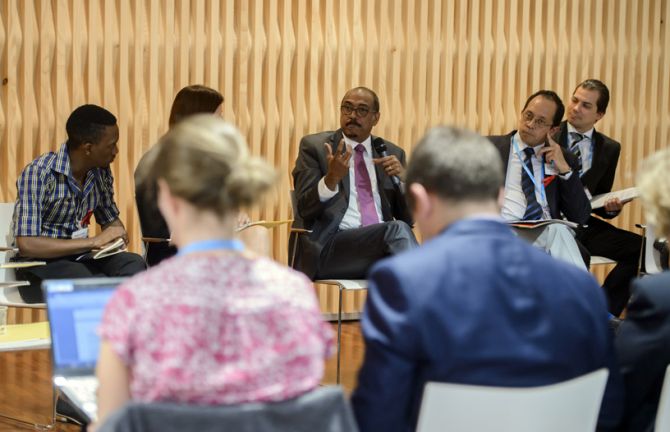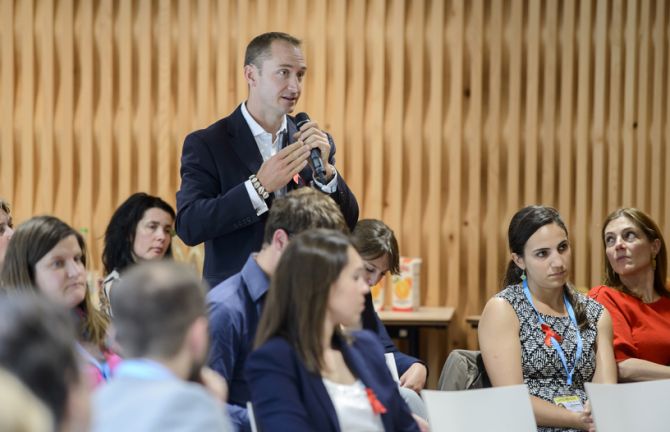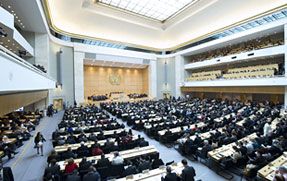Without addressing HIV among marginalized populations and human rights, it will not be possible to e...
Without addressing HIV among marginalized populations and human rights, it will not be possible to end the AIDS epidemic as a public health threat by 2030, according to experts at a World Health Assembly side event.
A high-level panel, which included UNAIDS Executive Director Michel Sidibé, called on health ministers to pledge to remove structural barriers to accessing HIV services and health care for all. The speakers also stressed the need for political commitment to leave no one behind. Ensuring that marginalized populations are not excluded from the universal health coverage target of the next sustainable development goals will be vital, they noted.
According to the participants, there is a risk that countries could seek to advance progress towards universal health coverage by focusing on easier to reach populations. In order to ensure that no one is left behind, measures will be needed to reduce the discrimination facing all marginalized groups and to ensure their meaningful participation in the development and implementation of health strategies.
The event set the stage for further dialogue among ministers of health to promote sharing of experiences on securing access to HIV services and health care for all.
Organized by the International HIV/AIDS Alliance, co-hosted by Luxembourg, Morocco and Ecuador and supported by UNAIDS, the event took place on 19 May at the International Red Cross and Red Crescent Museum in Geneva, Switzerland.
Quotes
“In the post-2015 era, global governance systems must be inclusive and people-centred. Fragile communities exist from Baltimore to Bamako and we need better systems for health to make sure we reach people on the margins.”
Michel Sidibé, UNAIDS Executive Director
“We need a system for health rather than a health system! Since 2008, Ecuador’s constitution has embraced universal coverage. It is important that universal coverage includes social protection and human rights, including for marginalized people.”
Fausto David Acurio Páez, Vice-Minister of Public Health, Ecuador
“We really have to fight to have equal access to universal health coverage and social protection. For this, we have to work together: civil society, governments and the different ministries at the global, national and local level.”
Lydia Mutsch, Minister of Health, Luxembourg
“Universal health coverage should not be a question of gender, sexual orientation or age.”
Brant Luswata, Clinic and Resource Manager from Icebreakers Uganda
“It is really a multisectoral approach from here to September. We need to fit our issues into the universal health system. We have two overarching goals: to remove the barriers and to have equity for all.”
Marielle Hart, Policy Manager, Stop AIDS Alliance
